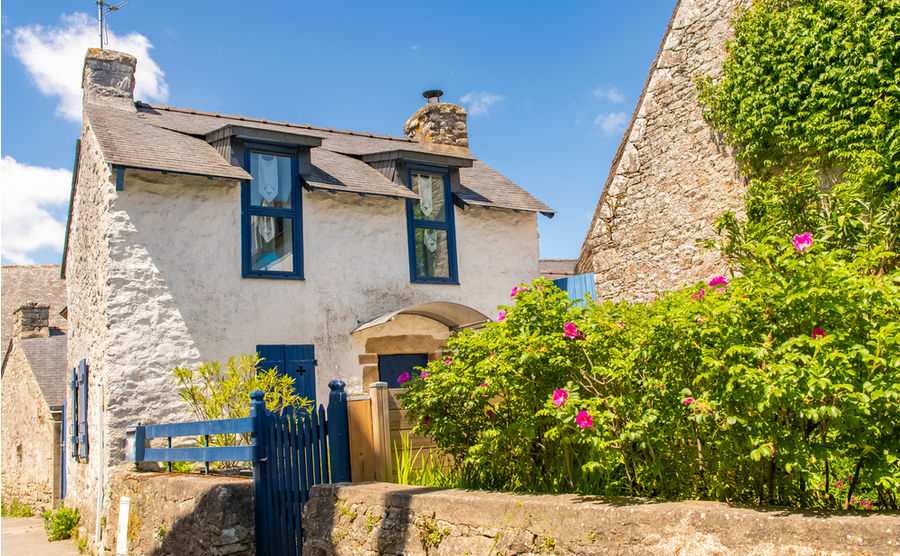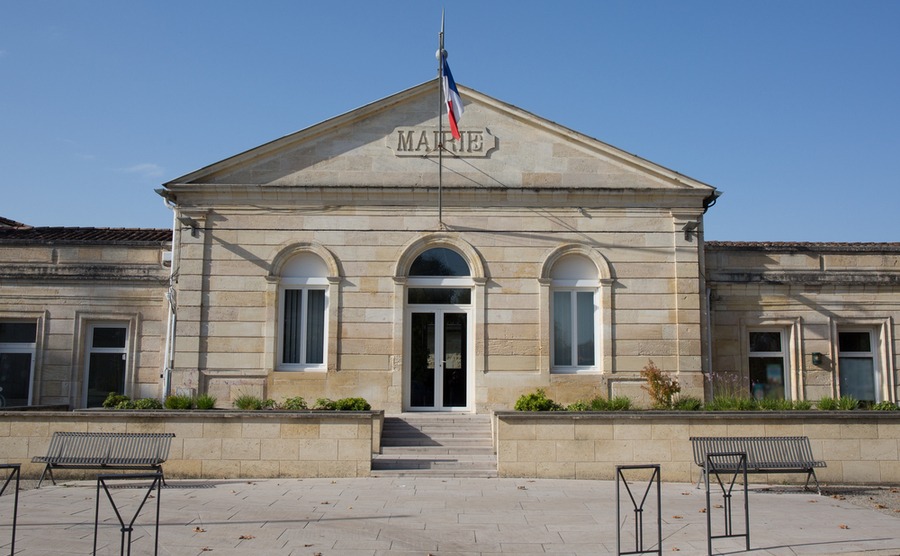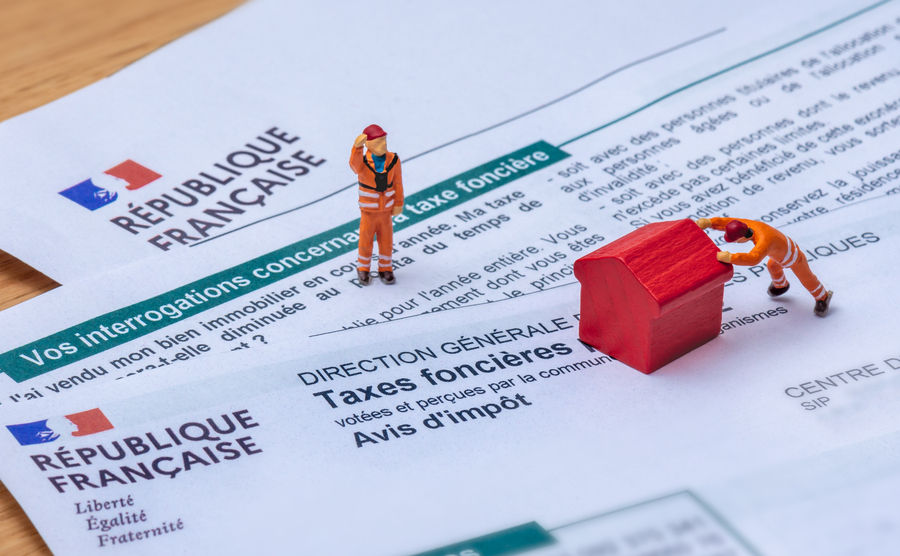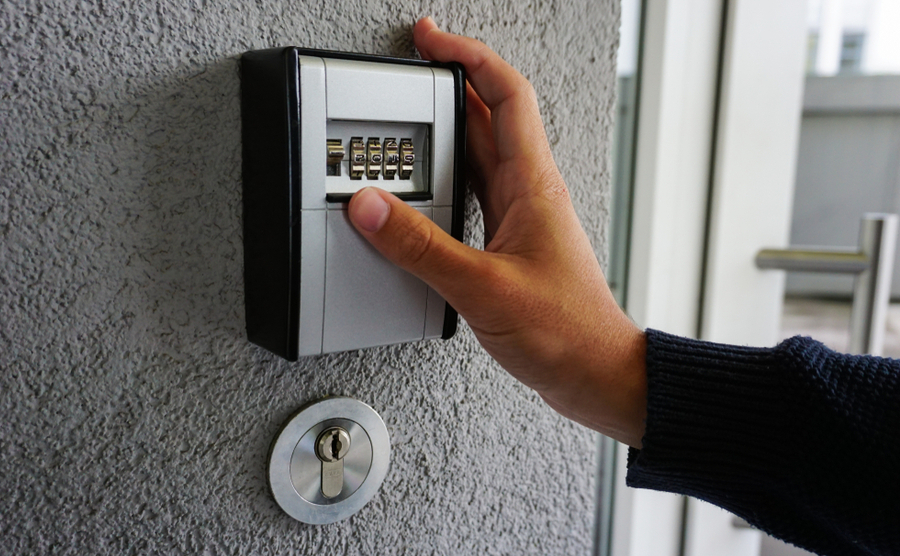Many people in France offer their second home or on-site gites to tourists throughout the summer months. Others buy property as holiday homes, perhaps not using them for more than a few months of the year. With interest and inflation on the rise across Europe, you’re not alone if you’re considering doing the same to make a few extra euros. Letting out your home in France can provide valuable additional income as there’s always demand for tourist accommodation.

Village house in Brittany, Ile aux Moines
Airbnb initiative
This week in France, I saw an article about Airbnb having unveiled a new initiative. A ten million dollar fund designed to awarding grants for the design of international premium accommodation. Winners of the fund get thee go-ahead and funding to build their designed property. To promote it’s “WOW” accommodation category offering. So far, only one lucky couple in France has been awarded this grant.

Would you consider letting out your holiday home?
Image: Prathankarnpap via Shutterstock
The French finalists
Anne Thai and Romain Briaux, designers from Paris have been awarded 100,000 dollars from the fund. With it, they’re tasked with building a uniquely gite in their small village of 138 inhabitants.
After buying their property in a bid to search for calm, escaping their normal bustling lives in Paris, they discovered the initiative. It gave them the chance to think bigger and better when it came to their envisaged renovation project. After working tirelessly to complete their application, they found themselves the only French people shortlisted amongst 200 finalists. They now have 10 months in which to finalise the the physical build of their project. Turning their project into reality.
Their small village is wholeheartedly behind them. Not only will their novel accommodation bring tourists and publicity to the area. But the build of the project will be completed by many local artisans and professionals from within the local area, providing much needed work to the local community.

There’s a lot of money in letting out your French holiday home
An additional source of income
Many people chose to relocate to France to do exactly this, without the aid of specific grants. Other people own holiday homes in France which sit unoccupied for long periods of time. Perhaps these stressful economic times have made people,not yet resident in France, rethink . A potentially invaluable additional source of income from their holiday homes at their disposal. Now may well be the time to consider how to maximise the income potential of these properties.
But this brings a series of questions to mind. What are the steps required to renting out holiday homes in France? Are there other considerations to take into account? Is it worth renting out your property on short term lets? What work is involved and what are the possible tax implications?

If you’re letting out your home, make sure you alert your local Mairie
Business registration
The first consideration is what kind of business registration you will require. Regardless of how much money you make, even if you continue to live somewhere other than France, you will need to do this. This applies to anyone letting out furnished accommodation. Which anyone renting out holiday homes in France will do, as the mere thought of moving out all furnishings would prove cost prohibitive as well as a real headache.
When letting furnished accommodation, the rental income is considered to be fiscally ‘commercial’ and must be registered as a business. There are two options for this, one easier of course, than the other. Loueur en meuble professionnel (LMP) and Loueur en meublé non professionnel (LMNP).
You will also need to inform your Mairie of your intention to rent your home by filling in a declaration de meublé. This is an important administrative step acquiring the permission to rent out your home.

Could you see yourself being a landlord?
Professional landlords
A professional landlord of furnished accommodation (LMP) is a landlord whose annual receipts from furnished accommodation exceed €23,000 per year. Also, whose income is deemed as greater (over 50%) than the other income of the fiscal household. If you fall into this category, you must register as a business in France. In turn, obtaining a business registration number (SIRET) to be registered for French tax purposes.
This also makes you subject to social security contributions in France as other self employed people. However, this status can bring with it some advantages, including exemption from wealth tax and concessions on inheritance tax. It is always recommended to seek professional advice relating to your specific circumstances for verification.
Find homes in France via our property portal.
Non professional landlords
If you do not see yourselves earning over €23,000 per year and this income will not be greater than the other income of the fiscal household, you can apply to be a non-professional landlord (LMNP). Be warned, this still involves obtaining a business registration number. You may then also become liable to pay social contributions depending on your earnings and other variables. Once again, we strongly advise seeking specialist help for your particular situation. You do not want to fall foul of any legalities in France.
For both professional and non-professional landlords, it is important to bear in mind that this definition requires a minimum level of service offered. Which in effect, means simply renting the property. So never be tempted to add additional services like providing food, or regular cleaning of the property during a tenure. This would potentially move you into a different category of service provision with even more far reaching implications.

Property taxes in France Image: HJBC via Shutterstock
Property taxes
The landlord of a furnished property will be subject to three property taxes. Property Ownership Tax (Taxe Fonciére), Residence Tax (Taxe d’Habitation) and Local Business Rates (CET). As a second home owner, you will be familiar with the first two already. However the third is a direct result of renting out holiday homes in France, although you could find yourself exempt.
You may also be required to apply to any rental rates, something called a taxe de séjour. This is payable by your guests. The decision to apply the tax within each commune is at the discretion of your local council. You will need to further investigate this at your local town hall for clarification.

A key safe is a very popular way to ensure your visitors can gain access to your property
Management
Perhaps the other biggest consideration of renting out holiday homes in France is simply the logistics. Especially if you are based elsewhere. Many people relocating to France, set up businesses offering property services specifically for this purpose. From handing over keys, to managing bookings and providing change over services. Others offer property upkeep services such as cleaning and gardening for holiday homes. So it shouldn’t be that hard to find someone. Perhaps just not as easy to find the right person. Bear in mind how valuable the right person can be. This is your home after all. You will ultimately be placing an enormous amount of responsibility and trust in them.
How to find the right person is to ask friends and neighbours for recommendations within your local area. Tried and proven recommendations offer both security and confidence. Do remember to check that the person in turn is legally registered accordingly, and with all the recommended insurances. This could prove a costly detail to ignore if they will be effectively working in your home routinely on your behalf.
French laws and regulations
You must investigate the laws in France regarding property rental. As in the UK, sadly sometimes things can, not quite go as planned. People can outstay their welcome. There are strict rules on evicting people over winter months in France as well as rights for squatters. So as ever, preparation, due diligence and planning are key here. Make sure you do your research!
Also beware of rules surrounding duration of rentals. This can be another tricky area to navigate. There are rules on the length of time that authorities see as “holiday rentals” as opposed to permanent, and people can easily fall foul of this constraint.

You’ll have to plan your year around when your property is available to renters
Other considerations
You also need to also take into account your routine and when you normally spend your time in your own property. If that is time that routinely falls at the same time each year, then great. But remember that renting out holiday homes in France, may put paid to any spontaneous trips you may decide to make. The availability of your home will have to be decided perhaps anything up to a year in advance.
Furthermore, whilst you may normally leave all your worldly goods and personal affects at your holiday home in order to travel light, this is not advised when letting out your home for obvious reasons. You may have to rethink your own routines due to other implications.
Of course, if you also normally leave the garden to run wild, ready to attack on your return, the property will now need continuous upkeep. In turn at additional costs to those you may or may not already incur.
Renting out holiday homes in France could provide that valuable additional income stream that we all so desperately need right now. But after thought, could also involve more change to your routine than you believe worth it. Which is why we would always advise to seek specialist advice and counsel based on your individual circumstances before you ultimately take the plunge.










